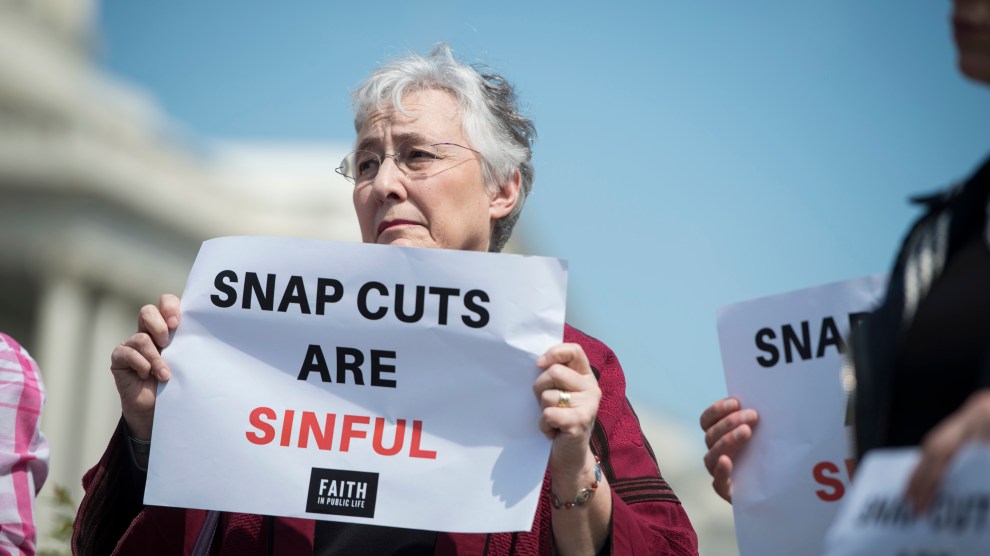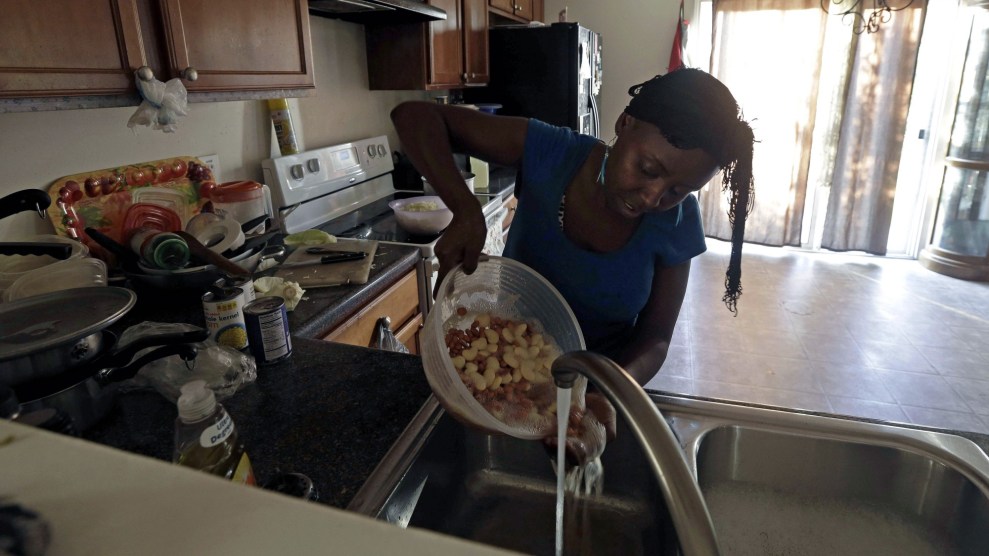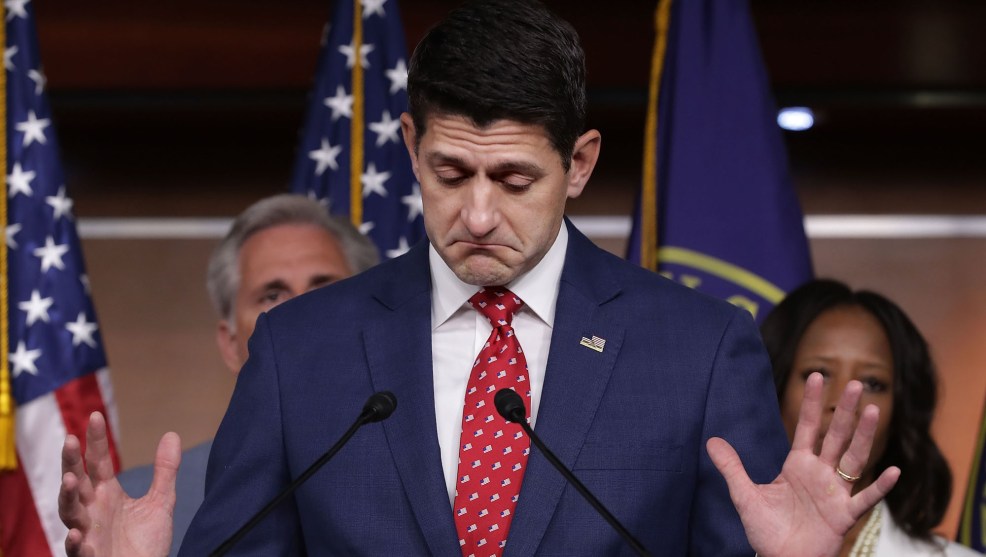
A protester urges lawmakers to reject food stamp cuts in the 2018 farm bill.Sarah Silbiger/Getty
On Tuesday, the Trump administration floated a plan that could strip food stamps from more than 3 million people.
The proposed rule change, announced by the Department of Agriculture, would limit the use of “broad based categorial eligibility”—a system, adopted by more than 40 states, that makes some low-income people automatically eligible for food stamps based on their receipt of other forms of federal aid, like Temporary Assistance for Needy Families (TANF). By undoing portions of this automatic eligibility, the administration estimates it will save $2.5 billion by pulling food stamps from millions of recipients.
The administration has billed this as a necessary change to close what it has labeled as a “loophole” that makes households eligible for food stamps without separate income or asset checks. The proposed rule would tighten categorical eligibility, and only provide such access to families who have received at least $50 per month in TANF benefits for six months or longer.
“States are taking advantage of loopholes that allow millions of people to receive Supplemental Nutrition Assistance Program (SNAP) benefits, commonly known as food stamps, who would otherwise not qualify,” Secretary of Agriculture Sonny Perdue wrote in a Fox News op-ed published Tuesday. “It is my job to ensure the people who truly need food stamps receive what they’re entitled to—but the waste must stop.”
Republicans have long lobbied to reduce food stamp expenditures by limiting categorical eligibility, which they see as wasteful and unfair, and attempted to pass a version of USDA’s proposed change in last year’s farm bill. Democrats, on the other hand, see this change as a threat to the health and security of millions of low-income families, by both narrowing food stamp eligibility while increasing paperwork families must complete to get food assistance.
Some policy advocates on Tuesday came out against the change. “After failing to weaponize the 2018 Farm Bill to strike categorical eligibility from the SNAP program, President Donald Trump is defying Congress and waging war on workers and families who are struggling to make ends meet,” said Ben Olinsky, the senior vice president of policy and strategy at the left-leaning Center for American Progress, in a statement. Other think tanks alongside CAP, like the Center on Budget and Policy Priorities, have noted that restricting categorical eligibility could cause families to lose their food assistance altogether as they achieve small increases in pay or accrue just a few thousand dollars in a safety net. Categorical eligibility currently allows states to tweak income and asset limits to more gradually phase out SNAP benefits as low-income families’ economic situations improve, so as not to undo modest financial gains.
This proposed change is the latest in several other attempts by the Trump administration to curb food stamp access, including by imposing more severe work requirements and by changing the way the poverty threshold is calculated.
The comment period on this administration’s latest proposal will begin on Wednesday and remain open for 60 days.
















